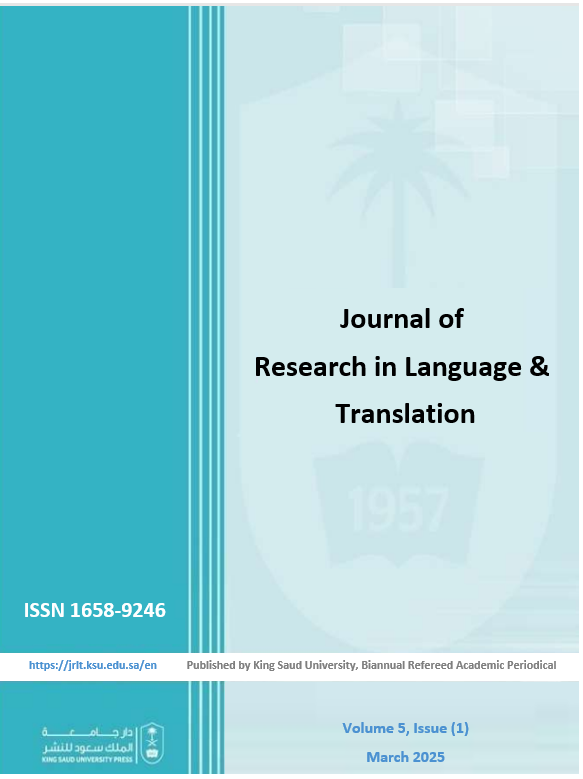Issues of Rendering some Polysemous Quranic Words into English: A Qualitative Study
DOI:
https://doi.org/10.33948/JRLT-KSU-5-1-5Keywords:
inimitability of the Quran, polysemy, Quran translation, translation strategies, vaguenessAbstract
One of the inimitable aspects of the Quran is the presence of a large number of words with polysemic significance. This paper aims to examine the different manoeuvres that translators of the Quran who have their roots in different linguistic and cultural milieux employ to tackle this predicament. Polysemy poses a quandary for translators since they have to take on the role of an exegete in addition to their role as linguistic mediators. Generally speaking, translators of the Quran do not adopt a unified strategy when they encounter words with multiple senses. They tend to adopt the meaning that tallies with the common (or primary) import of these words taking into consideration the relevant linguistic context. Sometimes, they depart from the primary sense of the word that comes to the mind when found in isolation and pick out a meaning that better collocates with the surrounding context. Put differently, it is usually the context that dictates this course of action. In this paper, the author argues that some translators of the Quran inadvertently put their readers at a disadvantage by depriving them of a window of opportunity to be more appreciative of the sublime grandeur of the linguistic miracles of the Quran. The study at hand has revealed that a couple of meanings can coexist and it is incumbent on the translator to make the reader informed about such aspects of the Quran which has made it inimitable in its original form. While millions of people are indebted to many translators of the Quran for their no mean feat considering its unsurpassable eloquence , there is always room for improvement.

